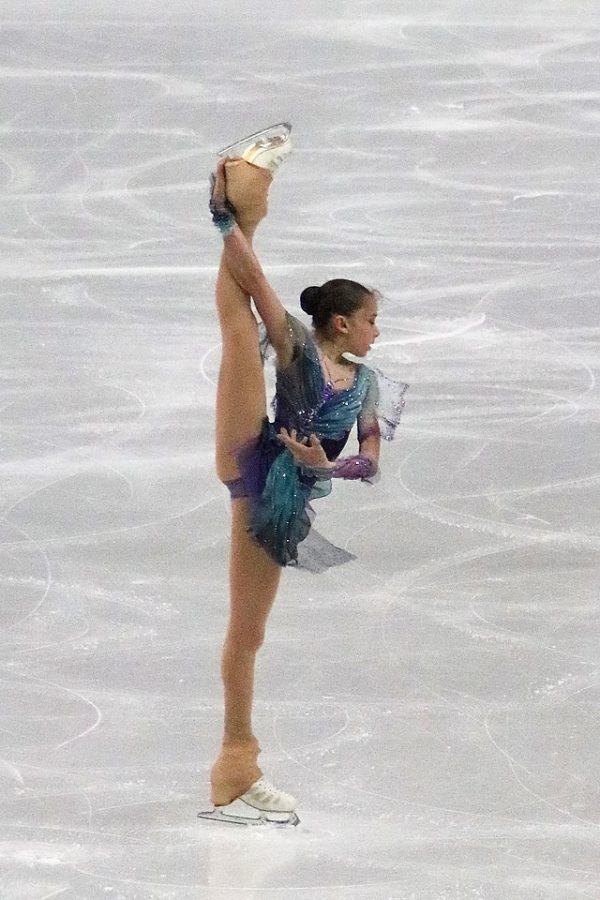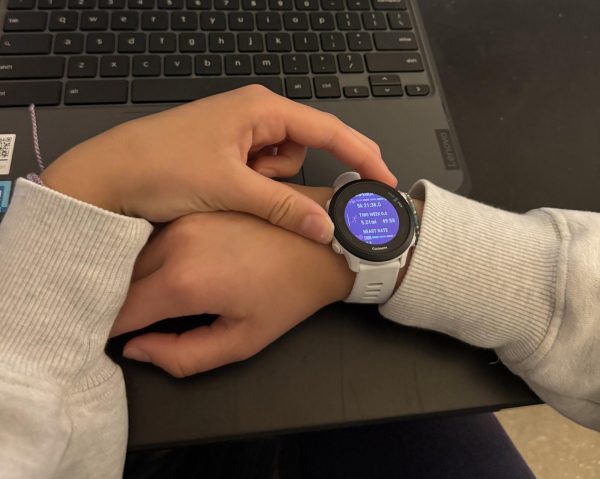Olympic skater allowed to compete after failure to provide clean drug test
Photo used with permission from WikiCommons
Olympic skater Kamila Valieva at the Junior Grand Prix Finals.
Ice skaters spend their entire lives on rinks and stages, competing to prove how great they are and showing the world what they can do. But there is one final stage where select athletes get to prove their worth and represent their country: the Olympics.
One of these few lucky athletes was Kamila Valieva, who skated representing the Russian Olympic Committee (ROC). At only 15 years old Valieva competed in the Team Event as well as the Women’s Single Skating event.
Competing at the Olympics is one of the highest achievements that an athlete can earn. It is a great honor and athletes are expected to respect the requirements and compete fairly. Before competing, athletes’ blood and urine are tested for any performance-enhancing drugs by the World Anti-Doping Agency (WADA). Valieva failed to provide a clean sample as three heart treatment drugs were found in her system, one of which is banned by the World Anti-Doping Agency.
Fans were outraged and demanded that Valieva be banned from competing at the womens’ individual skating event. At this point, Valieva had already competed and won gold in the team event and allowing her to compete would give her a second attempt at a gold medal. The Court of Arbitration for Sport ruled in Valieva’s favor saying that she did not need to be suspended as she was a minor and a “protected person.” People came out against the court’s ruling saying that it is the responsibility of the Olympic community to protect the integrity of the sport and hold all coaches and athletes accountable for their wrongful actions. Athletes need to know that they are competing on a fair and level playing field and in many people’s eyes, that right was broken.
Although it ultimately seems like what Valieva did was wrong, she still earned the support and respect of fans everywhere. People even went as far as claiming that this was staged to sabotage Valieva after she won a team gold. Valieva tested positive for these drugs on Dec. 25 at the Russian Nationals and the results, which came from a Swedish lab, did not come into light until about a week after Valieva helped the ROC win gold. Though the reason for this six-week wait on Valieva’s test result is unknown, officials have presumed that it was due to the surge in Covid cases in January. Valieva’s supporters have also resorted to blaming her coach, Eteri Tutberidze, saying that she forced Valieva to take the medication and have made claims of abuse.
Valieva ended up competing in both the free skate and the short program of the women’s individual skating competition. She skated cleanly to her short program on Feb. 15 ending with a score of 82.16, which put her in first place, setting her up for top three for her free skate program on Feb. 17. During her free skate, Valieva fell multiple times, causing her to drop down to fourth place. Both of her performances ended in tears.
Your donation will support the student journalists of Thomas S. Wootton High School. Your contribution will allow us to purchase equipment and cover our annual website hosting costs.
Maria Daraselia is a 2025 graduate.








ksusha • Mar 21, 2022 at 9:09 am
PURRRRR YAS MARIAAA